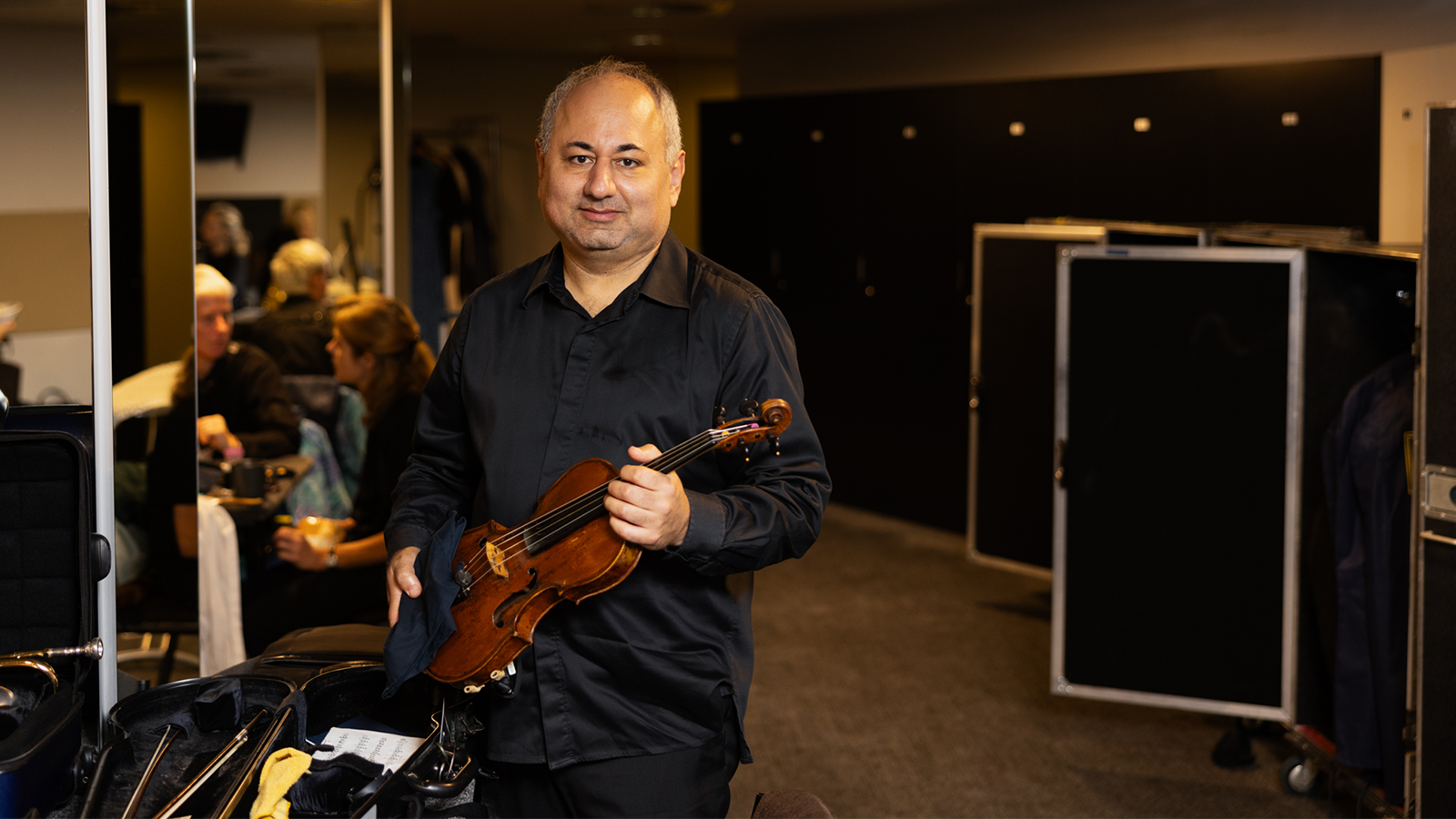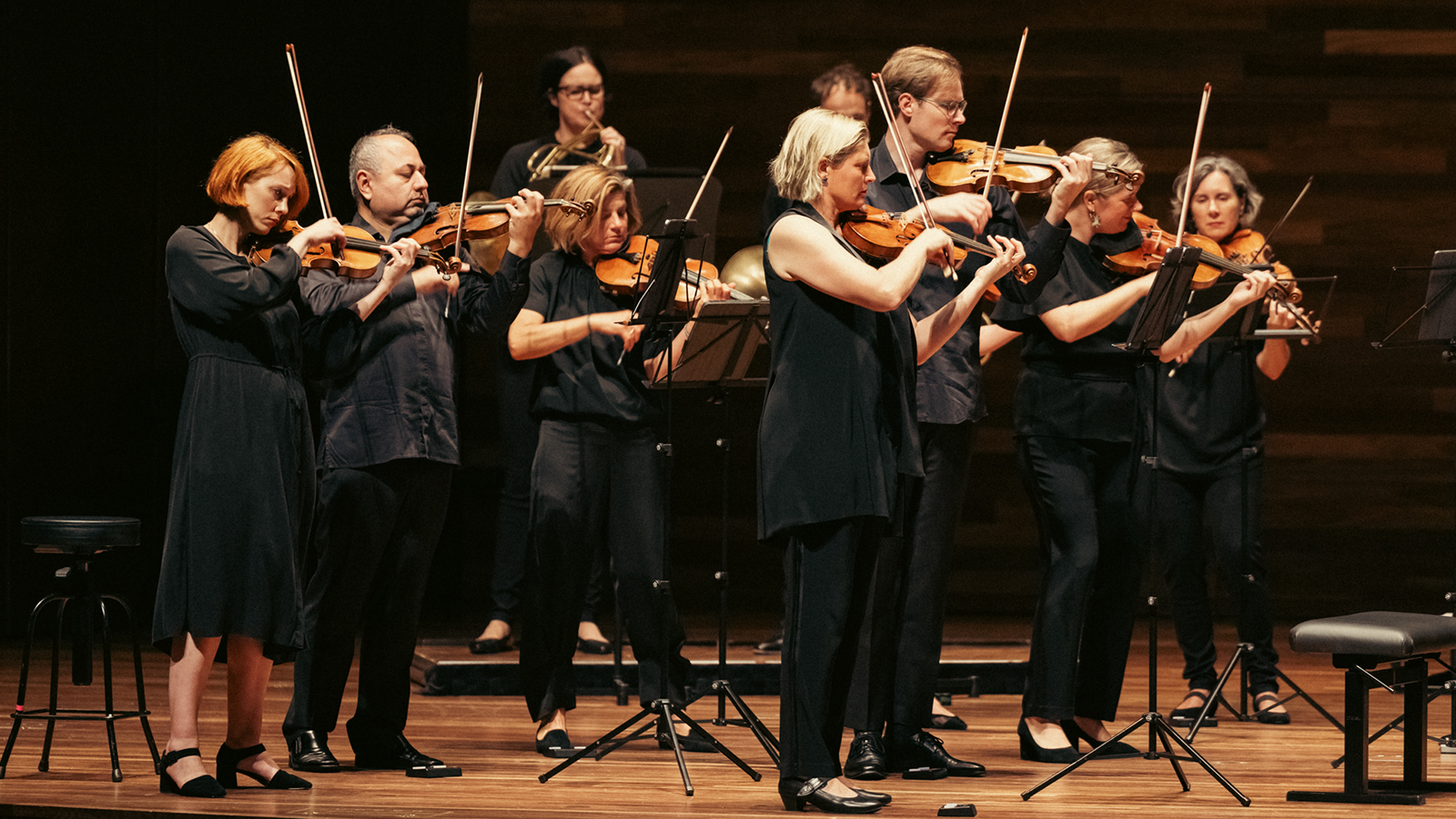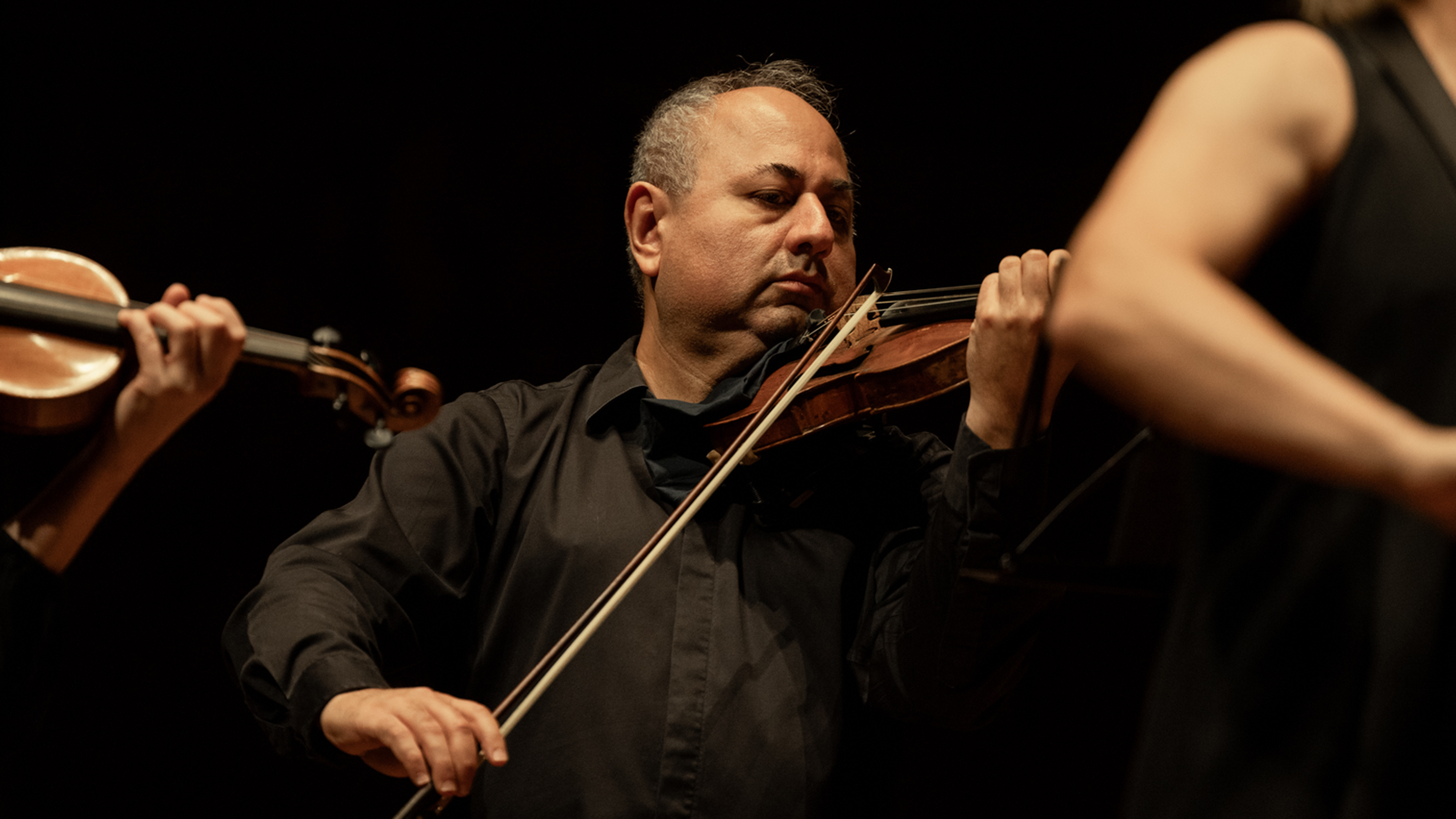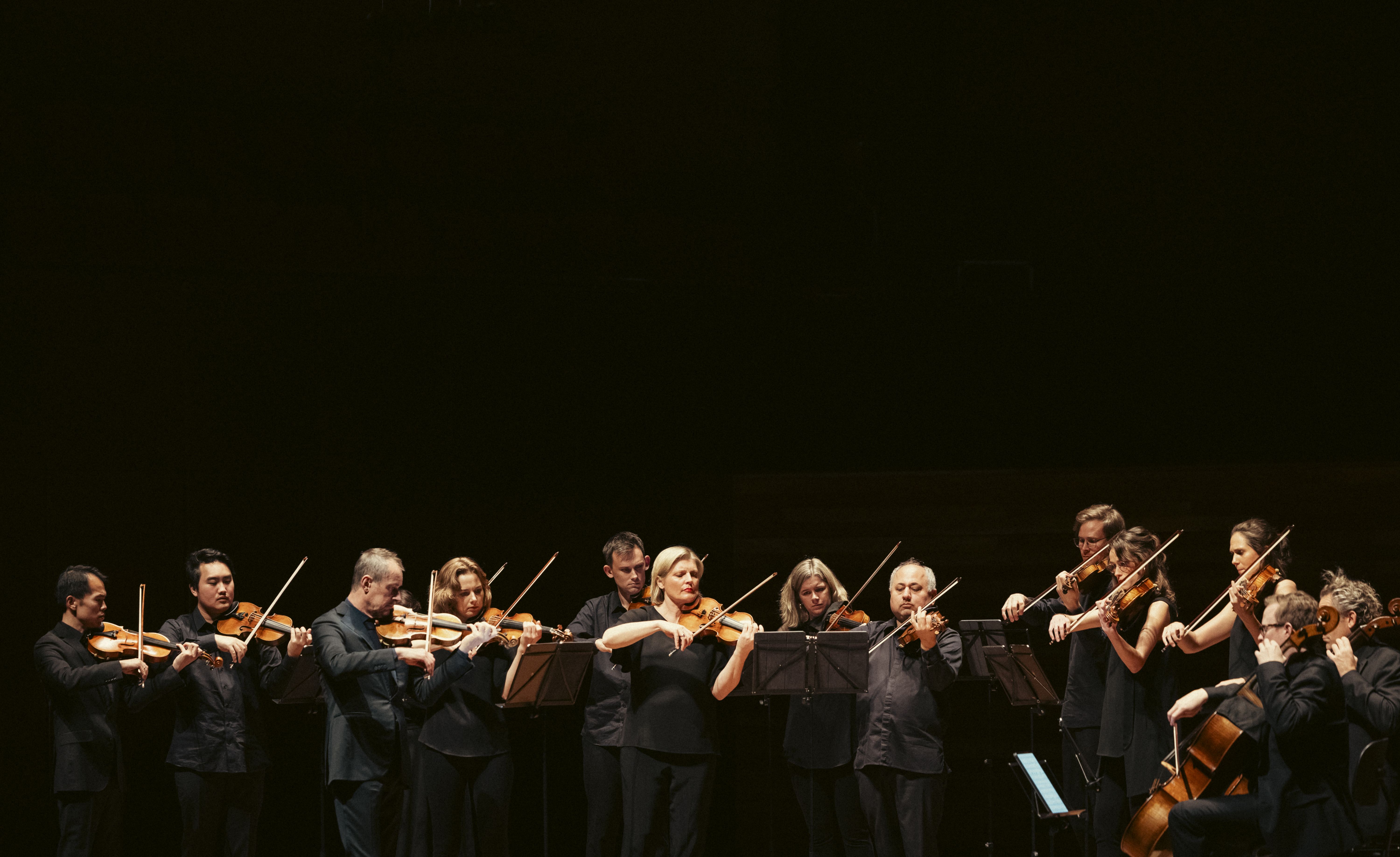
Ilya Isakovich says he was “doomed” to play the violin. Doomed, because his father played this instrument, and his grandfather too – and, because unlike most children in the Soviet Union at the time, he had access to a beautiful, high-quality violin. It was a German violin, he explains, that his grandfather, who had served as a violinist in the Soviet army during World War II, brought back from Berlin in 1945: he had been part of the forces that advanced into that city at the bitter, street-fought end of the war. Isakovich grew up listening to his grandfather play this instrument, and then, when he was old enough, got to play it himself.
He has never been a stranger to instruments with history.
“I was doomed,” he repeats, chuckling – he has a magnificent, throaty, free and frequent chuckle. “But the violin, it really is the best instrument. So it doesn’t matter.” He adds: “Don’t tell the others I said that.” For some reason, not all his colleagues agree.
—
This year is Isakovich’s 20th with the ACO – and after more than two decades, he still remembers the first time he heard the Orchestra play.
It was in Bologna, Italy, on the evening after he auditioned for the outfit, in the few spare hours he had before boarding his flight back home. He remembers this so clearly because he spent the entire performance “just sitting and smiling”, grinning from ear to ear.
“I had never heard an orchestra perform with such joy and purpose,” he says. “You could literally touch the energy on stage. And I thought, wow, I have just heard something truly great.”
It was the importance of his audition, of all that it might mean, that hit him in that moment.
—
“I had never heard an orchestra perform with such joy and purpose,” he says. “You could literally touch the energy on stage”
“Every violin, every instrument,” Isakovich says, “they all have their own character. Your job is to learn to work with that, to adjust.” The musician has to learn how to make each instrument “sing” in its own particular voice, and not get in the way.
With the ACO, Isakovich plays a 1590 Brothers Amati violin. When he speaks about it, his face glows. It is an instrument, he explains, “from the very beginning, when modern classical instruments started to be made” and the second-oldest instrument in the ACO’s possession, on loan to the Orchestra from the ACO Instrument Fund. Its voice, Isakovich says, is “beautifully dark, and...” – he pauses for a moment, searching for the right word – “velvety.”
In playing the Amati, he says, the challenge is that “it sings almost by itself”. And so he needs to play “with no force whatsoever, to just let it sing”. His playing needs “to be more free”.
—
The decision to join the ACO, Isakovich says, was one of the most difficult of his life. When he passed that audition in Bologna, he was living in Israel as a member of the Israel Philharmonic Orchestra – the best orchestra, he says, in Israel and one of the best in the world. It had also long been the locus of his ambition.
Isakovich asked the Israel Philharmonic to grant him unpaid leave to undertake his three-month ACO trial – but the orchestra refused. “They did not want to let me go,” he says. He had to choose between “breaking with this organisation” where he had a secure job, and “forfeiting the opportunity” – that joy, that purpose, that palpable energy – he had been given.
“But I took the chance,” he says. “And now,” – 20 years later – “here I am.”
—
Isakovich says his first year in Australia – his trial and then probation with the ACO – was an incredibly challenging and stressful time. He admits that the confidence he had was “a lucky one”, born of ignorance about exactly what he was getting himself into.

“I had to change so much, mentally and professionally,” he says, to understand and fit in with the ACO’s style of playing, which was so different to all that he had known. A big symphony orchestra, like the ones he had played in, is as different from the ACO “as a marathon to a 100-metre sprint”. He had taken a much bigger gamble than he had imagined.
But what he found, he says, is that in the smaller ensemble, everyone is able “to be appreciated for the musician that they are”. In this setting, everyone has more responsibility and more opportunity. Everyone is more valuable. “It’s just mathematics,” he chuckles. “But it’s amazing.”
—
When I ask Isakovich about his favourite composer, he doesn’t hesitate for a moment. “Bach,” he says. “Bach is like God.
“But underneath that, underneath God, I love Tchaikovsky, Mahler, Brahms: all of the romantics.” Something in the way he says this makes me suspect that Isakovich, too, is a romantic.
In this setting, everyone has more responsibility and more opportunity. Everyone is more valuable. “It’s just mathematics,” he chuckles. “But it’s amazing.”
Tchaikovsky in particular has a special place in Isakovich’s heart: his Violin Concerto is the piece he played for his audition with the ACO – that he has played for all of his auditions, everywhere, in fact – and it is still his favourite piece to perform.
In (then-Soviet) Ukraine, where he was born and raised, Isakovich grew up surrounded by Russian culture, by Russian music. “And so Tchaikovsky,” he says, “something in that music touches my soul.
“It is mine, I always think. It is my music.”
—
A few years before he joined the ACO, Isakovich had come to Sydney while on tour with the Israel Philharmonic. He has also never forgotten the harbour cruise the orchestra was taken on then, his awe and delight at the beauty of the city. “I remember thinking, wouldn’t that be amazing, to live in a city like this?” he says. “Wouldn’t it be a dream?”

When we talk, we are sitting near the ACO’s new quarters, on the Walsh Bay piers stretching out into the harbour. It’s a misty, rainy day – the kind of weather in which the harbour is rugged and wild looking and more stunning, I always think, than the glittering face it shows in the sun. We both keep pausing to watch the water for a moment, steely grey and tossing.
“When I started here, we worked in Circular Quay,” Isakovich says “I lived in Kirribilli, and I would walk to work each day across the bridge. And every day I’d think, this is amazing. This is heaven.”
A little later, he adds: “I have the best workplace in the world.”
By Fiona Wright
Fiona Wright is a writer, editor and critic from Sydney. Her most recent book of essays, The World Was Whole, was published in 2018.
Ilya Isakopvich next performs in the ACO's national tour of Altstaedt plays Tchaikovsky & Haydn. Click here to find out more.
